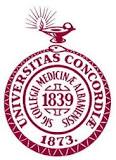Cardiovascular Inflammation Reduction Trial
| Status: | Active, not recruiting |
|---|---|
| Conditions: | Peripheral Vascular Disease, Cardiology, Endocrine |
| Therapuetic Areas: | Cardiology / Vascular Diseases, Endocrinology |
| Healthy: | No |
| Age Range: | 18 - Any |
| Updated: | 4/17/2018 |
| Start Date: | April 2013 |
| End Date: | December 2019 |
A Randomized, Double-blind, Placebo-controlled, Event-driven Trial of Weekly Low-dose Methotrexate (LDM) in the Prevention of Cardiovascular Events Among Stable Coronary Artery Disease Patients With Type 2 Diabetes or Metabolic Syndrome
The Cardiovascular Inflammation Reduction Trial (CIRT) is a randomized clinical trial
investigating whether taking low-dose methotrexate reduces heart attacks, strokes, or death
in people with type 2 diabetes or metabolic syndrome that have had a heart attack or multiple
coronary blockages. This trial is funded by the National Heart, Lung, and Blood Institute
(NHLBI)/National Institutes of Health (NIH).
investigating whether taking low-dose methotrexate reduces heart attacks, strokes, or death
in people with type 2 diabetes or metabolic syndrome that have had a heart attack or multiple
coronary blockages. This trial is funded by the National Heart, Lung, and Blood Institute
(NHLBI)/National Institutes of Health (NIH).
While inflammation contributes crucially to atherothrombosis, it is unknown whether
inhibition of inflammation per se will lower vascular event rates. The primary aim of the
Cardiovascular Inflammation Reduction Trial (CIRT) is to directly test the inflammatory
hypothesis of atherothrombosis by evaluating whether or not low-dose methotrexate (LDM) will
reduce rates of myocardial infarction, stroke, and cardiovascular death among stable coronary
artery disease patients with type 2 diabetes or metabolic syndrome, conditions associated
with an enhanced pro-inflammatory response. CIRT is a randomized, double-blind,
placebo-controlled, multi-center, event-driven trial that will randomize 7,000 men and women
from the United States and Canada. Following a five- to six-week open-label run-in (maximum 8
weeks), eligible participants who have either suffered documented myocardial infarction in
the past or have angiographically demonstrated multivessel coronary artery disease in the
past will be randomly allocated over a three to four year period to usual care plus placebo
or usual care plus LDM. The target methotrexate dose among those allocated to active therapy
is 15 to 20 mg po per week, a dose within the range of that commonly used for the treatment
of rheumatoid arthritis. All study participants will additionally receive 1.0 mg oral folate
to be taken daily six days per week. LDM complications will be minimized through education
programs for all investigators and coordinators, through enhanced communication with study
participants, by limiting enrollment to those with no evidence of malignancy, hepatitis,
renal dysfunction, chronic infection, pulmonary disease, or other risk factors for toxicity;
by conducting an initial 5- to 6-week active-therapy run-in (maximum 8 weeks) designed to
eliminate individuals who are either intolerant of or unable to adhere to treatment before
randomization; and through regular monitoring of liver function and hematologic indices using
a centralized methodology designed to ensure participant safety, allow for dose adjustments
while maintaining the study blind, and provide an efficient method to address issues of
compliance and follow-up on a cost-effective centralized basis. The primary trial endpoint is
the rate of myocardial infarction, stroke, or cardiovascular death. Secondary and tertiary
endpoints include all-cause mortality, coronary revascularization, incident congestive heart
failure, incident peripheral artery disease, incident venous thrombosis, clinically
significant aortic stenosis, incident atrial fibrillation, incident diabetes among those with
metabolic syndrome but not diabetes at study entry, and hemoglobin A1c (HbA1c) control among
those with diabetes at study entry. The trial is event driven such that in the absence of
extreme effects, the trial will conclude after accrual of at least 530 primary endpoints, an
effect estimated to provide 90 percent power to detect a 25 percent relative risk reduction.
The potential clinical impact of CIRT is broad as it has sufficient power to directly address
core issues in the inflammatory hypothesis of atherothrombosis, and thus, if successful, will
open major new directions for cardiovascular treatment.
inhibition of inflammation per se will lower vascular event rates. The primary aim of the
Cardiovascular Inflammation Reduction Trial (CIRT) is to directly test the inflammatory
hypothesis of atherothrombosis by evaluating whether or not low-dose methotrexate (LDM) will
reduce rates of myocardial infarction, stroke, and cardiovascular death among stable coronary
artery disease patients with type 2 diabetes or metabolic syndrome, conditions associated
with an enhanced pro-inflammatory response. CIRT is a randomized, double-blind,
placebo-controlled, multi-center, event-driven trial that will randomize 7,000 men and women
from the United States and Canada. Following a five- to six-week open-label run-in (maximum 8
weeks), eligible participants who have either suffered documented myocardial infarction in
the past or have angiographically demonstrated multivessel coronary artery disease in the
past will be randomly allocated over a three to four year period to usual care plus placebo
or usual care plus LDM. The target methotrexate dose among those allocated to active therapy
is 15 to 20 mg po per week, a dose within the range of that commonly used for the treatment
of rheumatoid arthritis. All study participants will additionally receive 1.0 mg oral folate
to be taken daily six days per week. LDM complications will be minimized through education
programs for all investigators and coordinators, through enhanced communication with study
participants, by limiting enrollment to those with no evidence of malignancy, hepatitis,
renal dysfunction, chronic infection, pulmonary disease, or other risk factors for toxicity;
by conducting an initial 5- to 6-week active-therapy run-in (maximum 8 weeks) designed to
eliminate individuals who are either intolerant of or unable to adhere to treatment before
randomization; and through regular monitoring of liver function and hematologic indices using
a centralized methodology designed to ensure participant safety, allow for dose adjustments
while maintaining the study blind, and provide an efficient method to address issues of
compliance and follow-up on a cost-effective centralized basis. The primary trial endpoint is
the rate of myocardial infarction, stroke, or cardiovascular death. Secondary and tertiary
endpoints include all-cause mortality, coronary revascularization, incident congestive heart
failure, incident peripheral artery disease, incident venous thrombosis, clinically
significant aortic stenosis, incident atrial fibrillation, incident diabetes among those with
metabolic syndrome but not diabetes at study entry, and hemoglobin A1c (HbA1c) control among
those with diabetes at study entry. The trial is event driven such that in the absence of
extreme effects, the trial will conclude after accrual of at least 530 primary endpoints, an
effect estimated to provide 90 percent power to detect a 25 percent relative risk reduction.
The potential clinical impact of CIRT is broad as it has sufficient power to directly address
core issues in the inflammatory hypothesis of atherothrombosis, and thus, if successful, will
open major new directions for cardiovascular treatment.
Inclusion Criteria:
- Age ≥ 18 years at screening
- Documented past history of myocardial infarction OR past evidence of multivessel
coronary artery disease by angiography.
- To qualify on the basis of past history of myocardial infarction, the event must
be documented either by hospital records or by evidence on current ECG of Q waves
in two contiguous leads and/or an imaging test demonstrating wall motion
abnormality or scar. The patient must also have completed any planned coronary
revascularization procedures associated with the qualifying event, and be
clinically stable for at least 60 days prior to screening.
- To qualify on the basis of multivessel coronary disease, there must be past
angiographic evidence of atherosclerosis in at least 2 major epicardial vessels
defined either as the presence of a stent, a coronary bypass graft, or an
angiographic lesion of 60% or greater. Left main coronary artery disease that has
been revascularized with a stent or bypass graft will qualify as multivessel
disease, as will the presence of a 50% or greater isolated left main stenosis.
The patient must also have completed any planned coronary revascularization
procedures associated with the qualifying event, and be clinically stable for at
least 60 days prior to screening.
- History of type 2 diabetes or metabolic syndrome at time of study enrollment
- Willingness to participate as evidenced by signing the study informed consent
Exclusion Criteria:
- Prior history of chronic infectious disease, tuberculosis, or severe fungal disease;
chronic hepatitis B or C infection; renal insufficiency; interstitial pneumonitis,
bronchiectasis, or pulmonary fibrosis; known chronic pericardial effusion, pleural
effusion, or ascites; chronic liver disease; myeloproliferative disorders in the past
5 years; non-basal cell malignancy or treated lymphoproliferative disease within the
past 5 years; known HIV positive; life expectancy of < 3 years;
- Chronic inflammatory condition such as lupus or rheumatoid arthritis, ulcerative
colitis or Crohn's disease
- White blood cell count < 3,500/ul, hematocrit < 32 percent, or platelet count <
75,000/ul
- Liver transaminase levels (AST or ALT) >upper limit of normal (ULN) or albumin < the
lower limit of normal (LLN);
- Creatinine clearance < 40 ml/min as estimated with the Cockroft-Gault equation;
- History of alcohol abuse or unwillingness to limit alcohol consumption to less than 4
drinks per week
- Women of child bearing potential, even if they are currently using contraception, and
women intending to breastfeed.
- Men who plan to father children during the study period or who are unwilling to use
effective forms of contraception.
- Requirement for use of drugs that alter folate metabolism
(trimethoprim/sulfamethoxazol) or reduce tubular excretion (probenecid) or known
allergies to antibiotics making avoidance of trimethoprim impossible;
- Current indication for methotrexate therapy;
- Chronic use of oral steroid therapy or other immunosuppressive or biologic response
modifiers. Eligible study participants will be encouraged to have up to date
pneumococcal and influenza vaccinations as recommended based on their age and
underlying medical conditions.
- Chest X-ray evidence in the past 12 months of interstitial pneumonitis,
bronchiectasis, or pulmonary fibrosis. For participants who do not have a chest X-ray
in the prior 12 months, a chest X-ray will be obtained at baseline as part of the
study protocol.
- New York Heart Association Class IV congestive heart failure.
We found this trial at
406
sites
Cleveland Clinic Cleveland Clinic is committed to principles as presented in the United Nations Global...
Click here to add this to my saved trials
University of Alabama at Birmingham The University of Alabama at Birmingham (UAB) traces its roots...
Click here to add this to my saved trials
University of Alabama at Birmingham The University of Alabama at Birmingham (UAB) traces its roots...
Click here to add this to my saved trials
Brigham and Women's Hosp Boston’s Brigham and Women’s Hospital (BWH) is an international leader in...
Click here to add this to my saved trials
Montefiore Medical Center As the academic medical center and University Hospital for Albert Einstein College...
Click here to add this to my saved trials
Click here to add this to my saved trials
University of Florida The University of Florida (UF) is a major, public, comprehensive, land-grant, research...
Click here to add this to my saved trials
University of Southern California The University of Southern California is one of the world’s leading...
Click here to add this to my saved trials
3400 Spruce St
Philadelphia, Pennsylvania 19104
Philadelphia, Pennsylvania 19104
(215) 662-4000

Hospital of the University of Pennsylvania The Hospital of the University of Pennsylvania (HUP) is...
Click here to add this to my saved trials
3181 Southwest Sam Jackson Park Road
Portland, Oregon 97239
Portland, Oregon 97239
503 494-8311

Oregon Health and Science University In 1887, the inaugural class of the University of Oregon...
Click here to add this to my saved trials
Click here to add this to my saved trials
Akron General Medical Center It
Click here to add this to my saved trials
Albany Medical College Albany Medical Center is northeastern New York's only academic health sciences center...
Click here to add this to my saved trials
Click here to add this to my saved trials
Click here to add this to my saved trials
Click here to add this to my saved trials
Click here to add this to my saved trials
Click here to add this to my saved trials
Click here to add this to my saved trials
Click here to add this to my saved trials
Click here to add this to my saved trials
Click here to add this to my saved trials
Click here to add this to my saved trials
Click here to add this to my saved trials
Northside Hospital Northside Hospital-Atlanta (in Sandy Springs) opened in 1970. The original facility had 250...
Click here to add this to my saved trials
Click here to add this to my saved trials
Click here to add this to my saved trials
Click here to add this to my saved trials
Click here to add this to my saved trials
Click here to add this to my saved trials
Click here to add this to my saved trials
Click here to add this to my saved trials
Click here to add this to my saved trials
Click here to add this to my saved trials
Click here to add this to my saved trials
Click here to add this to my saved trials
Click here to add this to my saved trials
Click here to add this to my saved trials
Click here to add this to my saved trials
Joslin Diabetes Center Joslin Diabetes Center, located in Boston, Massachusetts, is the world's largest diabetes...
Click here to add this to my saved trials
Click here to add this to my saved trials
Click here to add this to my saved trials
Click here to add this to my saved trials
Click here to add this to my saved trials
Click here to add this to my saved trials
Click here to add this to my saved trials
Click here to add this to my saved trials
Click here to add this to my saved trials
Click here to add this to my saved trials
Click here to add this to my saved trials
Click here to add this to my saved trials
Click here to add this to my saved trials
Click here to add this to my saved trials
Click here to add this to my saved trials
Click here to add this to my saved trials
Click here to add this to my saved trials
Click here to add this to my saved trials
Click here to add this to my saved trials
Click here to add this to my saved trials
Click here to add this to my saved trials
Click here to add this to my saved trials
University of Chicago Medical Center The University of Chicago Medicine has been at the forefront...
Click here to add this to my saved trials
Click here to add this to my saved trials
Click here to add this to my saved trials
Click here to add this to my saved trials
Click here to add this to my saved trials
Click here to add this to my saved trials
Click here to add this to my saved trials
Click here to add this to my saved trials
Click here to add this to my saved trials
Click here to add this to my saved trials
Click here to add this to my saved trials
Click here to add this to my saved trials
Click here to add this to my saved trials
Click here to add this to my saved trials
Click here to add this to my saved trials
Click here to add this to my saved trials
Click here to add this to my saved trials
Click here to add this to my saved trials
Click here to add this to my saved trials
Click here to add this to my saved trials
Click here to add this to my saved trials
Click here to add this to my saved trials
Click here to add this to my saved trials
Click here to add this to my saved trials
Click here to add this to my saved trials
Click here to add this to my saved trials
Click here to add this to my saved trials
Click here to add this to my saved trials
Click here to add this to my saved trials
Click here to add this to my saved trials
Click here to add this to my saved trials
Click here to add this to my saved trials
Click here to add this to my saved trials
Click here to add this to my saved trials
Henry Ford Hospital Founded in 1915 by auto pioneer Henry Ford and now one of...
Click here to add this to my saved trials
Click here to add this to my saved trials
Click here to add this to my saved trials
Click here to add this to my saved trials
Click here to add this to my saved trials
Click here to add this to my saved trials











